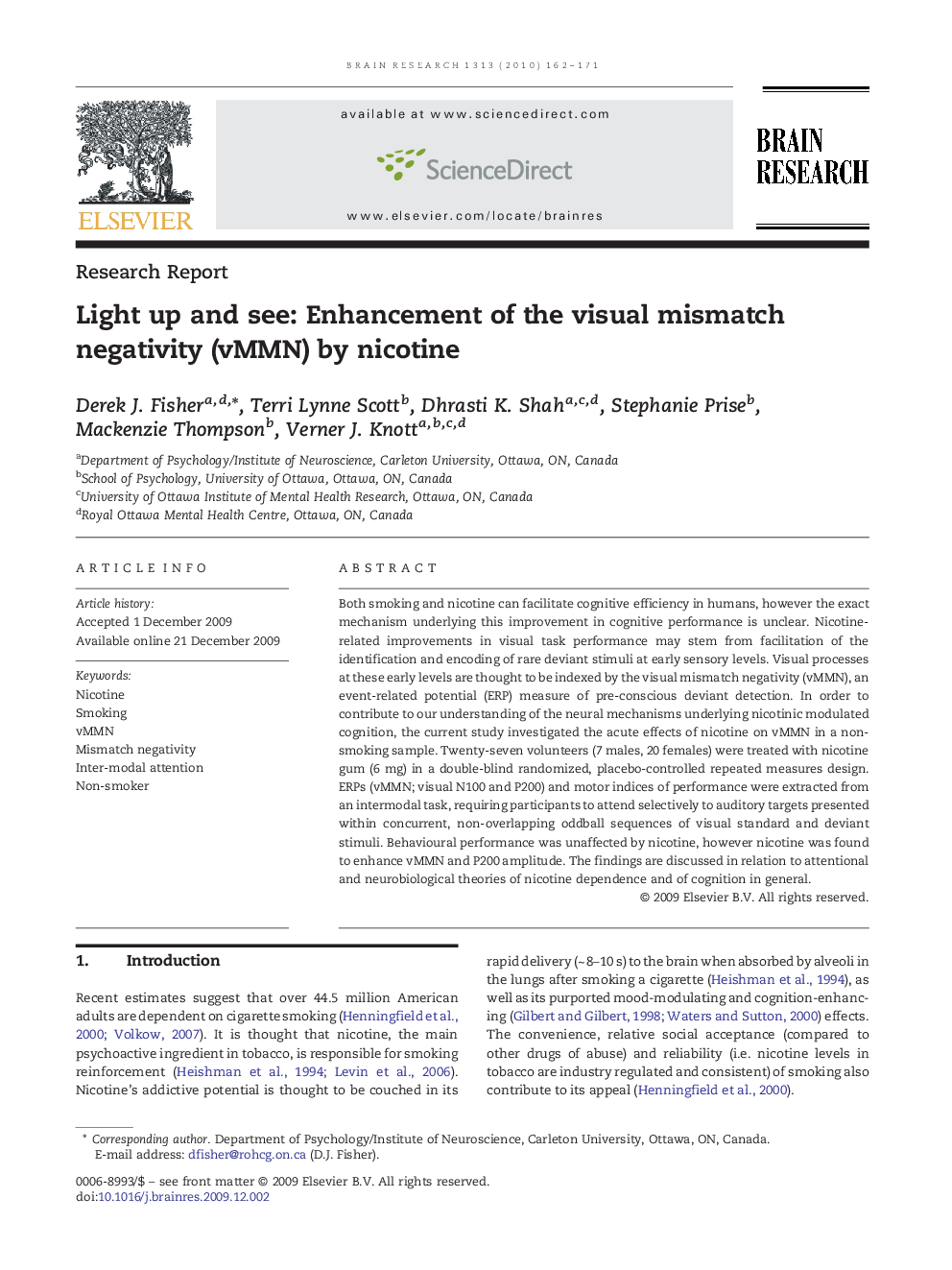| Article ID | Journal | Published Year | Pages | File Type |
|---|---|---|---|---|
| 4327307 | Brain Research | 2010 | 10 Pages |
Both smoking and nicotine can facilitate cognitive efficiency in humans, however the exact mechanism underlying this improvement in cognitive performance is unclear. Nicotine-related improvements in visual task performance may stem from facilitation of the identification and encoding of rare deviant stimuli at early sensory levels. Visual processes at these early levels are thought to be indexed by the visual mismatch negativity (vMMN), an event-related potential (ERP) measure of pre-conscious deviant detection. In order to contribute to our understanding of the neural mechanisms underlying nicotinic modulated cognition, the current study investigated the acute effects of nicotine on vMMN in a non-smoking sample. Twenty-seven volunteers (7 males, 20 females) were treated with nicotine gum (6 mg) in a double-blind randomized, placebo-controlled repeated measures design. ERPs (vMMN; visual N100 and P200) and motor indices of performance were extracted from an intermodal task, requiring participants to attend selectively to auditory targets presented within concurrent, non-overlapping oddball sequences of visual standard and deviant stimuli. Behavioural performance was unaffected by nicotine, however nicotine was found to enhance vMMN and P200 amplitude. The findings are discussed in relation to attentional and neurobiological theories of nicotine dependence and of cognition in general.
